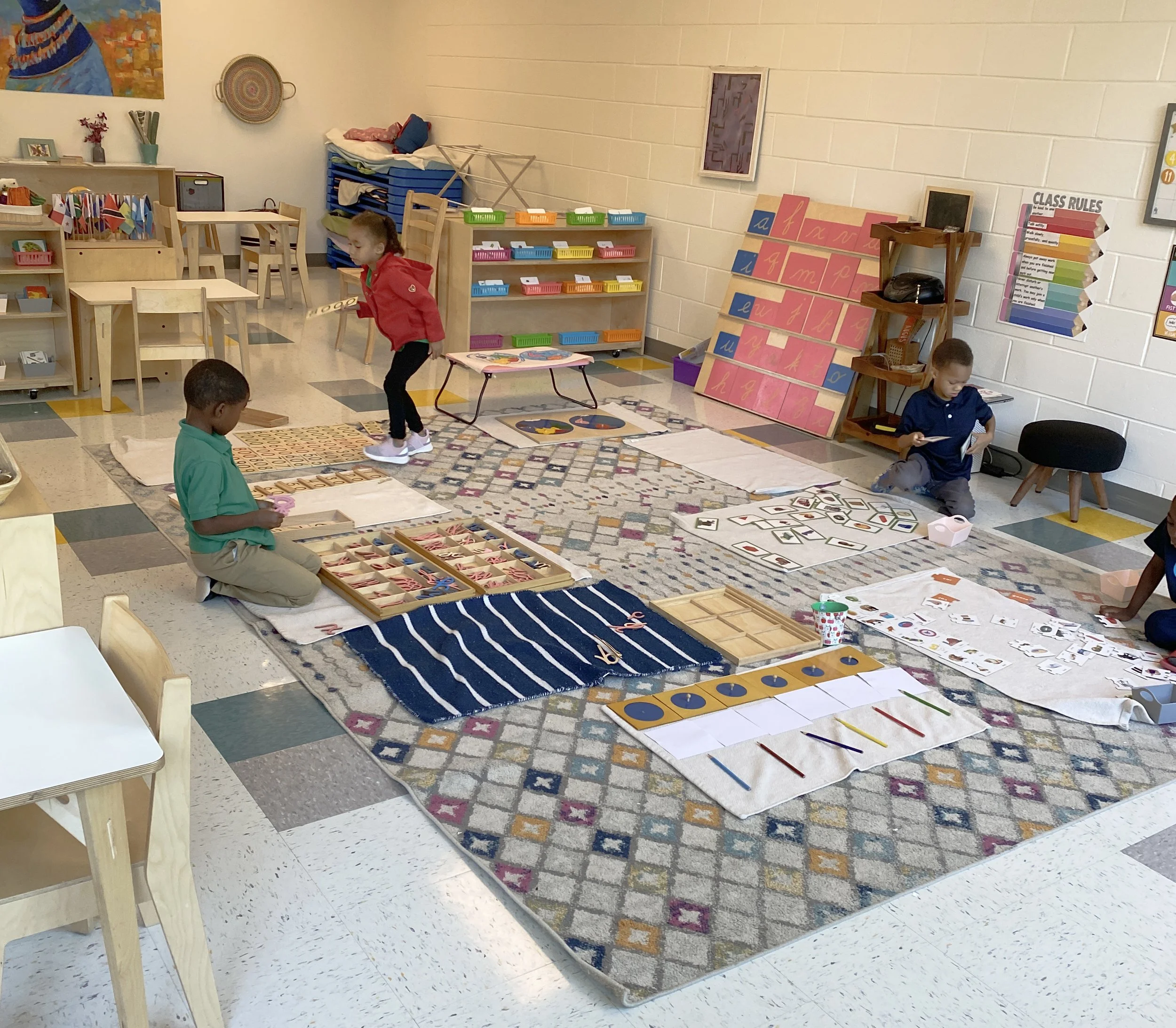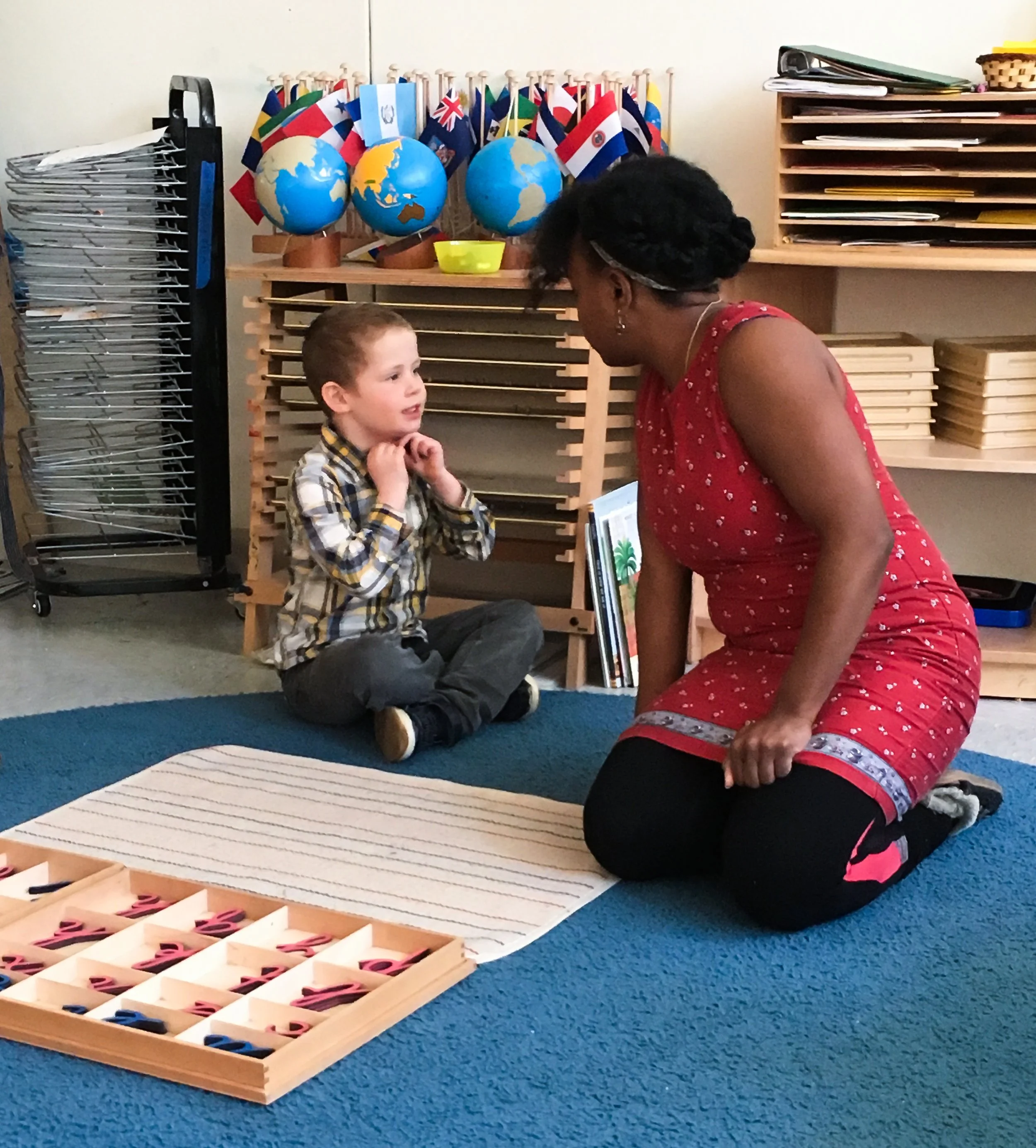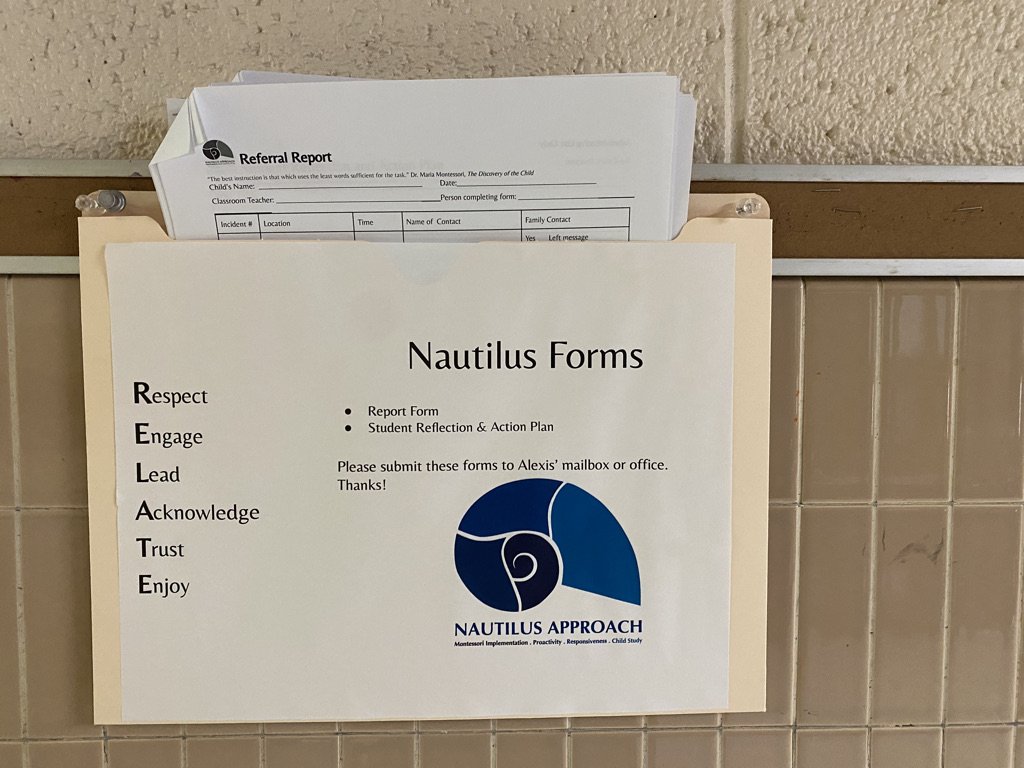Summer 2026
Nautilus Approach for the Whole School
Wednesday, July 15, 2026
11:00am - 5:00pm ET
The Nautilus Approach replaces the traditional “discipline/behavior policy.”
"Children have a tendency to imitate. They must adapt to this world and be able to do all the things that are done in the environment. They imitate for this reason."
- Dr. Maria Montessori
Reconnecting children to their environment
This one-day, 6 hour training will show participants how to implement a school-wide, proactive behavior support system, grounded on Montessori principles, and built to support the needs of children. The Nautilus Approach replaces the traditional “discipline/behavior policy” that Montessori schools often use in line with their school district or for lack of better alternatives. Like the Montessori method, it is a constructivist approach, and focuses on the whole-human (rather than other discipline policies or systems which use a behaviorist approach), and aims to reconnect the child to their environment.

“So helpful that Nautilus framework is tied specifically to Montessori environments, rather than having to adapt training content to our unique situation.”
Why constructivist thinking?
Education today approaches the work of learning from a range of perspectives, two of which are behaviorist and constructivist. Before exploring the constructivist approach underlying the Montessori method, it’s important to understand the behaviorist approach within which many educators were educated.
Behaviorist Approach
This is the idea that learning happens when there is a proper response to stimulus, such as correct answers (proper response) to math problems on a worksheet (stimulus). The child is merely reactive to the conditions in the environment without being expected to take an active role in discovery. The belief is that facts and information are separate from the learner and are something to be acquired. Behaviorism then is focused on the outward behavior or result, situating learning outside of the learner.
Constructivist Approach
By contrast, constructivism sees learning as creating meaning from experience. This thinking rests on the idea that learners acquire knowledge through active engagement. Students learn by fitting new information together with what they already know. With children as active partners, the method relies on practitioners’ understanding of and ability to implement the constructivist approach, though many themselves have been raised through a behaviorist approach.
This thinking doesn’t simply inform what is happening in classrooms separate from the way the rest of the school is run. As one ecosystem, there also needs to be a synchronized understanding and use of the same framework. When implementing the Montessori method across the whole school, understanding the distinction between behaviorist and constructivist approaches and activating a commitment to using constructivist methods becomes the shared frame.
This course takes you through a constructivist approach to responding to all children across all school environments. Created for whole schools, this course is best suited to teams ready to make a change.

“I appreciated how practical this course is; you gave us tools that we could use right away, and you gave us opportunities to practice.”
System of Justness
Nautilus training is part of the System of Justness, a framework for working with children that is based on Montessori principles. This framework aims to ensure that all children are able to fully participate in Montessori classrooms, regardless of their individual needs. The practice centers on understanding the needs of children and providing them with the support they need to be successful.
System of Justness is a school-wide, Constructivist approach that allows Montessori communities to give consistent responses to children in need within a known structure. The System is also intrinsic to Montessori Implementation.
Like the method itself, we begin the learning process with a direct aim that gives us a sense of what we will know and be able to do once we are done.
Know
Why we need a consistent System of Justness
What is the design?
How will we keep track?
Do
Relationship Building
Nautilus Phases
Conflict Resolution
Re-Entry process
“Role play opportunities were a nice chance to explore the practical application of some techniques discussed (especially before the need to actually implement arises).”
“The content was excellent and helpful. It was evident that the facilitators understood the Nautilus process philosophically and logistically.”
School leaders: are you interested in providing a Nautilus Approach course tailored specifically for your staff and school needs? Let us know. We would love to work with you to customize your school’s professional development experience either in-person or online.
One day - live, virtual course.
The live, online general training is led by Elizabeth Slade and/or Kisha Young.
Friday, January 9, 026
11:00am-5:00pm ET
CEUs: 0.6. To receive CEU credit, participants will need to attend the full session.
Cost: $175



